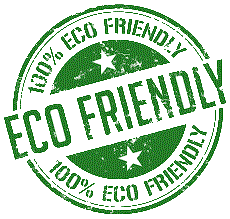
Our
SUSTAINABLE DEVELOPMENT

It is not because we are talking about "Ecolodge" or "Ecotourism" that you will have to go and get water from the well!!!
Of course you will have naturally all the confort and the oppportunities of a modern and well thought establishment. We were very carefull to intagrate our activity as well as possible within the natural environment that surround us...


20 concrete actions in favour of the environment
Eco-respectful from the construction :
-
No trees have been cut.
-
Large window for natural light and ventilation (no air conditioning).
On a daily basis :
-
Use of non-toxic, highly biodegradable and hypoallergenic products produced in Costa Rica (EcoClean).
-
Waste sorting (plastics, metal, wood and glass) in which our customers are invited to participate
-
Compost of kitchen waste.
In the rooms :
-
Solar panels producing 100% of the hot water.
-
Bathroom hospitality products (biodegradable shampoos and soaps) by wall-mounted dispensers.
-
Energy-saving lamps or Leds in the casitas.
-
Completely no-smoking space.
Water :
-
Showers and sinks equipped with thermostatic mixers.
-
Wastewater treated by a septic tank without chemical addition.
-
Garden watering system during the dry season using gravity sewage.
Electricity :
-
For the illumination of the garden, special eco-energy lighting with photocells and timers to minimize the use of energy.
-
Information form in each bungalow reminding our guests that using towels twice or more save energy and water. So they decide how often their towels should be changed.
Information :
-
Make customers aware of the eco-gestures and best practices of a Responsible Tourism.
-
Documentation, guides and books available to inform customers about the great biodiversity of Costa Rica
-
Healthy and local food, served in no disposable dishes (we produce our own organic coffee)
-
Waste recycling program (plastics, metal, wood and glass, paper)
The human aspects :
-
Develop the neighbourhood: staff and workers, who come from the neighbourhood to involve the local population in economic projects that can improve their standard of living. (Local craft shop)
-
Mobilize institutional teams around sustainable initiatives to preserve the local environment (waste collection)




